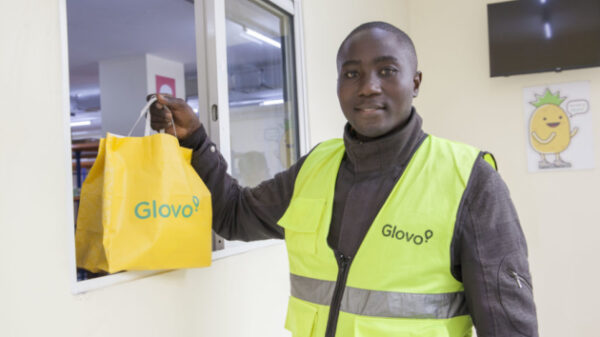NAIROBI, Kenya, Mar 12 – Before the Covid-19 pandemic struck, e-commerce was not that widespread in Kenya.
After the government introduced stringent lockdown measures such as movement restrictions, among others, shopping was physically impeded.
Consequently, buyers were forced to order goods digitally through leading delivery platforms.
However, shoppers needed goods delivered immediately, while e-commerce could take up to three days.
Growing demand for faster delivery birthed q-commerce, which basically means faster delivery of goods to customers. Deliveries could take 2-3 hours.
Capital Business spoke to Glovo Regional Q-commerce Regional Director Marta Ayala Ruiz and below is the conversation:
Please tells us what is q-commerce
Q-commerce, also referred to as quick commerce, is a type of e-commerce where emphasis is on quick deliveries, typically in less than an hour. Q-commerce originally started with food delivery and it still represents the largest chunk of the business.
Through the Glovo app, Q-commerce division enables consumers to use Glovo to order from their favourite supermarkets, neighbourhood stores and the Glovo Market. Glovo Market uses the latest in in-store digital technology and dedicated resources to ensure the quickest possible delivery times with customers receiving their orders in 20-40 minutes.
At Glovo, we are just shaping the future of retail by being faster than what e-commerce right now is offering, and we are not only about food, it’s also about non-food business that entails pharmaceutical, book stores, electronics shops and clothes – basically anything.
Our vision is delivering anything within the city, with easy access for everyone, we’re just trying to push our multi category value proposition through quick commerce.
As an early adopter, why did you embrace q-commerce?
As a business from the very beginning, the multicategory aspect really played out well, customers could just literally ask for anything in a blank textbox and that would be delivered to them. So that proves that from day zero, the value proposition of Glovo is literally anything and that’s not limited to food. We know that food of course and restaurants will be in our core business for a long time.
Our mission and ambition has never been limited to only one specific vertical, but to anything that the users really need.
According to statistics, which are the products in high demand in q-commerce?
This keeps evolving here in Kenya, but from the whole business of Glovo Kenya, almost 40 percent of it comes from q-commerce. This proves there is high demand and a positive impact, it reinforces again the fact that we are delivering anything as our value proposition says. We are partnering with our top retailers and even launching our own micro fulfilment centres (MFC).
To date we have opened three micro fulfilment centres (MFC), Glovo is looking into leveraging its advanced affordability value proposition and offering affordable fresh and consumer packaged goods (CPG) to the lower middle-income earners, consumers can order from the micro fulfilment centre through the Glovo Market.
With time we have seen an evolution and right now fresh is what the people are really demanding through our platform, meaning that Glovo is right now an option where they they go to buy essentials for their homes. So we see fresh and the essentials holds as the top sellers right now.
The number of businesses you have enrolled into q-commerce?
We have hundreds of businesses right now, we are not only partnering with top retailers such as Naivas and Carrefour. We are also partnering with medium size retailers, as well as small businesses that are specialized in different areas, meaning we are partnering with stores that are only delivering fruits, vegetables, drinks, and flowers for instance.
To increase the business sales, we have diversified our business approach to reach both big partners and merchants and also for the small sized business. In 2022, we run some campaigns with small and medium and even micro entities for both food and quick commerce because it’s one of our main pillars to make them grow and to have these social impact also in all the markets where we are present.
What technology have you embraced to make q-commerce successful?
It is not that different from our whole app, we follow the same technology or the same approach when it comes to the product delivery. Our technology allows us to have a really optimized logistic approach. That’s one of the key factors I would say makes sure that our deliveries are fast or as fast as our users are expecting. It’s how we also manage our fleet right or the fleet of drivers collaborating with global and of course how the algorithm behind this business model works right.
How we interact with our partners is key for us, we try to onboard the partners from the beginning within an operational excellence framework by training them and helping support them constantly on a daily basis, so that they know how to manage those deliveries right.
They know what delivery means and they’re not just focused on their offline business, but also they take advantage of their online and prioritize it as well.
Apart from Nairobi, do you offer q-commerce in other towns?
We do in all the cities where we are present right now in Kenya, we do believe that it’s actually an opportunity to even expand more, quick commerce is going to play an even bigger role right here in the capital that it’s Nairobi where there are more orders and the customer behaviour of the users might be different.
Challenges with q-commerce currently?
There quite a number of challenges of course, and I think there are challenges everywhere because also our ambition is extremely high. Something that we are working super thoroughly on is making sure that the availability of the products, it’s always close to 100%, right. And we know that’s the biggest challenge especially because of how the offline retailers work as well. Like even if you go to the supermarket yourself, you might not find some of the products you’re looking for, so that’s what we are working towards to improve these availability so that the user experience is it’s flawless. And that would be our main priority right now.
Are you also looking at expanding to other towns?
We are also looking for opportunities to expand, and in 2023 we are exploring different possibilities to see what opportunities are out there, making sure that of course we excel at the cities where we are already present in and we certain that we are 100% solid there.
Expansion for sure is going to be part of our levers for growth. We want to make sure that we are get to serve as many people in Kenya as possible.



















































